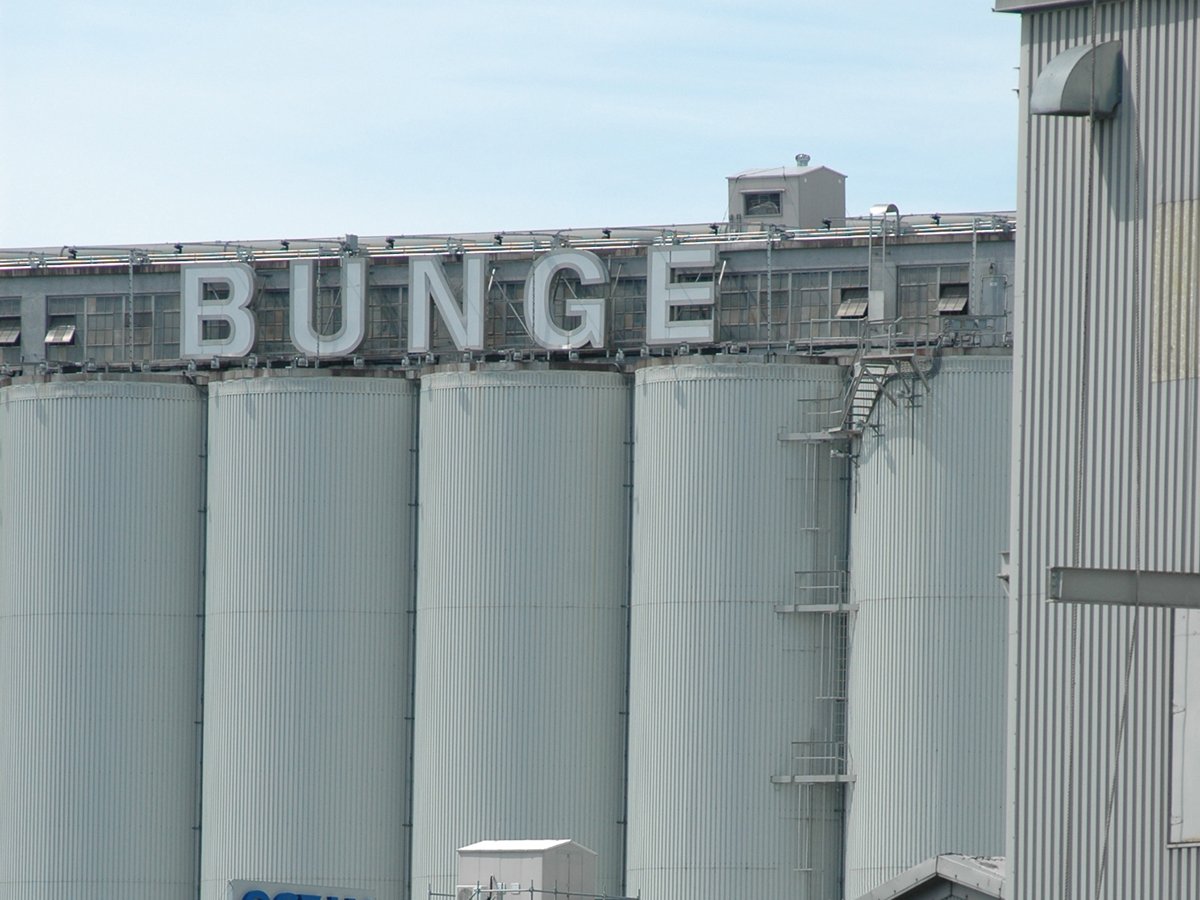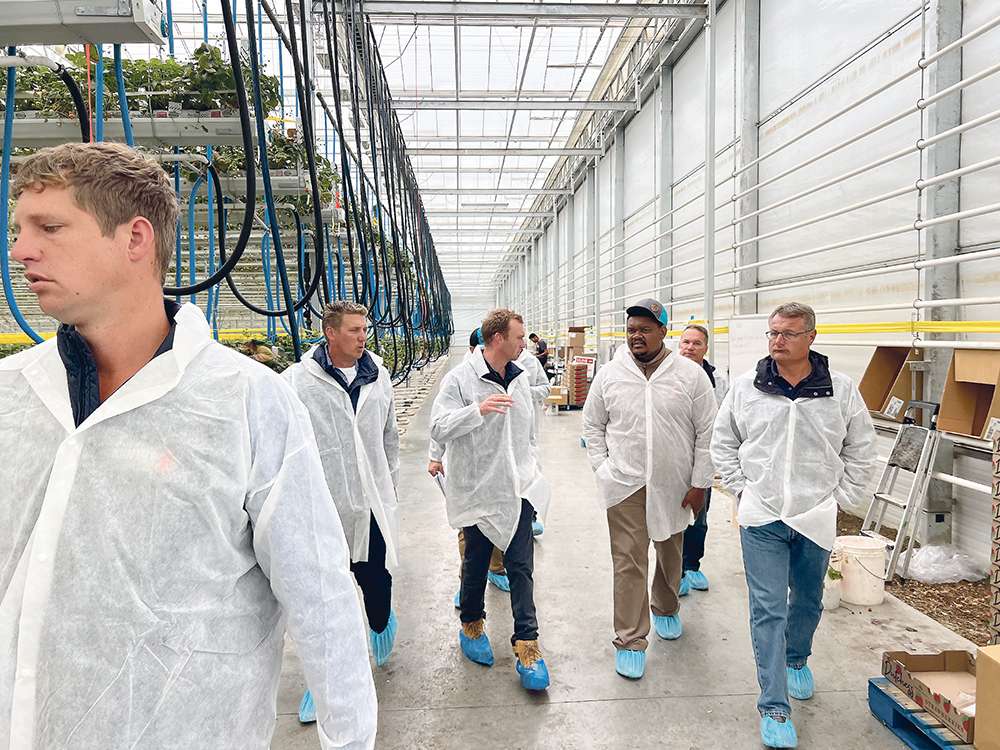Eight producers visit farms and agri-food operations in the province under Nuffield Canada’s Global Focus Program
Producers from countries ranging from Zimbabwe to Australia toured Alberta as part of an international program that helps farmers experience how agriculture is practised around the world.
“It’s not that we can take everything and try to implement it in our country, but it’s just sparking, you know, getting that thought going,” said Ranga Huruba, head of operations at the Shangani Holistic ranch in Zimbabwe.
“It really helps in terms of solution generation…. You get to explore different areas and places and talk to people — get to interact. It builds you as an individual, and that energy is what you need to build other peoples’ lives as well. So, what are we here for — to make life better for the next person.”
Read Also

Bunge’s crop mix is changing
Bunge has predominantly been a soybean processing firm, but that’s about to change after the merger with Viterra with softseed processing and grain merchandising gaining ground.
As part of a group of eight people, Huruba recently visited farms and agri-food operations in Alberta under Nuffield Canada’s Global Focus Program, which is under the umbrella of Nuffield International. Branches in member countries provide scholarships as high as $25,000, enabling recipients to see first-hand how agriculture is practised in different parts of the world.
Nuffield scholars must travel for five weeks as part of a Global Focus Tour, followed by 10 weeks of independent study. They must also each prepare a 10,000-page report on what they have learned, which is presented at their home country’s annual general meeting.
Besides Alberta, the latest tour included Singapore, France, and England. Next up will be the United States, where the eight scholars will meet with policymakers in Washington, D.C., said Steve Laroque, a crop adviser and producer from Three Hills, Alta., who is a member of Nuffield Canada’s board of directors.
Nuffield International is a non-profit organization founded in 1947 on the idea that the best way to feed the world is to teach people how to become better farmers, he said. As someone who was awarded a scholarship in 2008, Laroque described his own experiences after visiting countries such as Australia and Brazil “as an absolute rocketship.”
He said the bigger picture was realizing how policies can create barriers that prevent farmers from reaching their full potential.
Huruba said Africa can feed the world.
“We’ve got very good soils and our climate is not that bad,” he said, pointing to what Alberta farmers have achieved with a shorter growing season and -40 C winters, something that is “unheard of when you come into Africa.”
He said Africa’s greatest resource is its people. “They are hard working, they are willing to engage and it’s just a matter of getting them into the right state of mind for them to own it because I think it’s an issue of owning their destiny and not waiting for external help in all of those things,” he said.
“Yes, you can have collaboration, you can have synergies here and there, you can have people that you’re working with. But I think there’s just that sense of ownership and sense of belonging that this is our Africa, and let’s make it great again, so that means there is a lot that will change with that kind of perception, be it institutions, how things work, and all that kind of thing, so it will affect the whole chain going up politically and socially.”
As an operation that combines aspects of a ranch with a game reserve containing wildlife such as elephants, Shangani Holistic is one example of what producers hope to achieve for agriculture in Zimbabwe.
Huruba seeks to manage cattle, wildlife and people in a way that is sustainable for the local dry, savannah conditions. He wants to improve ecosystem resilience while increasing the production and income of farmers.
Laroque helped guide the group of Nuffield scholars around Alberta, where they visited operations as varied as a vegetable grower and a bison ranch to a honey producer and a cow-calf operation. Huruba noticed “there’s a lot of innovation around your farming systems — that people are free to think and explore and push boundaries.”
The scholars also visited Sunterra Market in the Keynote condo complex in Calgary. It is part of an Alberta chain of European-style grocery stores owned by the Sunterra Group, which controls companies across a wide range of the province’s agri-food industry.
Facilities include a new high-tech, 20-acre greenhouse operation that raises tomatoes and strawberries in Acme, Alta. As part of their visit to the greenhouse, the scholars saw first-hand how the Sunterra Group grows such produce for sale in its stores.
Such vertical integration is unusual in the agriculture industry, said Glen Price, co-owner and president of Sunterra Quality Food Markets Inc. “I would say we’re very unique in terms of having every aspect of production, processing and retail.”
Huruba said he found the tour of Alberta to be a positive experience.
“With what we have seen and stuff that we have been exposed to, there’s a lot of areas that get that light bulb going on in my head to see what we can also export or import as a country, as Zimbabwe, in terms of how your farmers are running their entities.”
Policies and legislation help make agricultural innovation possible in Alberta, he said. “And I think, again, we talk about farmers having voices at the table. I think you guys, you’re aware, you’re way ahead in terms of that, and it’s something that I myself, personally, I also need to be engaging in, so those are the sort of take homes that I’m taking so far from what I’ve experienced.”
















